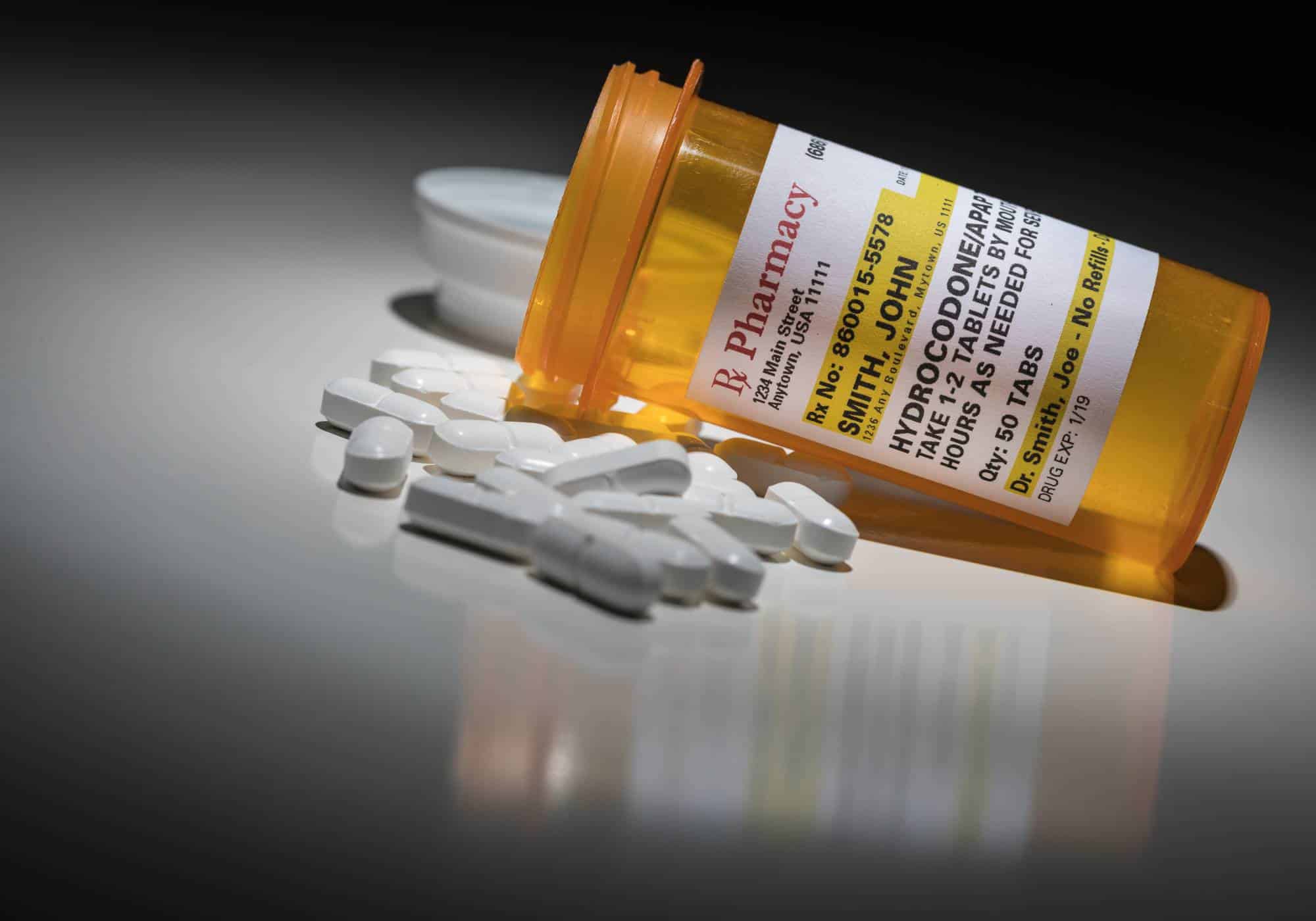If you or someone you love is struggling with Benzo addiction, our benzo addiction treatment center in Atlanta, GA can help. Our team of experienced professionals provides evidence-based treatments and compassionate care to support lasting recovery. Benzodiazepine addiction can be difficult to overcome, but with the right support and treatment, individuals can achieve a fulfilling and healthy life.
Hope Harbor Wellness stands as a premier destination for benzo addiction treatment in Atlanta, Georgia. Through our diverse and effective treatment methodologies, our mission extends beyond mere wellness; we aspire to guide clients toward complete wholeness. Dive deeper into our specialized Benzodiazepine addiction recovery solutions below.
What Are Benzodiazepines?
Benzodiazepines, often just called “Benzos,” are a group of medications that doctors prescribe for a variety of mental health issues. These meds help with problems like anxiety, panic attacks, seizures, and even symptoms people get when they stop drinking alcohol or using certain drugs.
These drugs are legal, but they’re not meant for long-term use because they can be addictive. That’s why there are rules about who can prescribe them and for how long. In the US, they fall under a category called Schedule IV drugs, which means they’re closely watched.
While you might hear of them being used as a pill, some, like Valium, can also be given as a liquid directly into the veins. But just like any medicine, they can end up being sold illegally. So, you might hear street names for them like Tranks, Downers, or Benzos.
Here are some of the common ones:
Even though they can help many people, they’re not without risks. One of the big concerns is getting hooked on them. If you’re worried about your use of benzos or if someone you know might have a problem, Hope Harbor Wellness in Atlanta, GA, is here to help. Call our outpatient bezno addiction treatment center to help you or your loved one understand and deal with their addiction.
Are Benzos Addictive?
Benzodiazepines, when used over a prolonged period, can lead to the development of tolerance. This means that increasingly higher doses or more frequent intake is needed to achieve the effects originally produced by lower doses. As tolerance to benzodiazepines builds, it often results in a cycle of escalating use.
Such escalation increases the likelihood of developing a physical dependency on benzodiazepines. Once physical dependence sets in, reducing or stopping the intake of benzodiazepines can trigger uncomfortable and potentially severe withdrawal symptoms, a hallmark of benzodiazepine dependence. Tolerance and withdrawal are both recognized as signs of addiction to benzodiazepines.
Chronic misuse of benzodiazepines can lead to significant changes in the brain, particularly in regions associated with reward processing. Over time, regular use of benzodiazepines becomes necessary for normal functioning and to avoid the onset of withdrawal symptoms. This dependency underscores the addictive potential of benzodiazepines and the importance of careful, monitored use.
How Addictive are Benzodiazepines?
Benzodiazepines have a notable potential for addiction, particularly when used extensively or beyond prescribed guidelines. The development of tolerance to benzodiazepines can start quickly, sometimes even within the first few weeks of treatment, and can occur even with small, prescribed doses.
The likelihood of developing an addiction to benzodiazepines increases under certain conditions, including:
- Prolonged use: Extended use of benzodiazepines heightens the risk of addiction.
- High dosage: Taking larger amounts of benzos than recommended can escalate the addiction risk.
- Combining substances: Using benzodiazepines alongside other substances, such as opioids or alcohol, can amplify the risk.
- Past addiction history: Individuals with a history of addiction or substance abuse are more susceptible to developing an addiction to benzodiazepines.
If addiction to benzodiazepines occurs, a medically supervised, gradual reduction in dosage is often recommended, followed by comprehensive treatment, which may include inpatient or intensive outpatient programs at a specialized benzo rehab. These steps are crucial to safely and effectively overcome benzodiazepine addiction.
Why are Benzodiazepines Addictive?
Benzodiazepines are potentially addictive due to their impact on brain chemistry. These drugs work by enhancing the activity of GABA, a neurotransmitter that calms the brain and reduces feelings of anxiety and agitation.
A key factor in benzo drug addiction is the increased release of dopamine, a neurotransmitter linked to the brain’s reward and pleasure centers. With prolonged benzo use, the brain may start relying on these medications to stimulate rewarding and pleasurable sensations, leading to substance use disorder, a severe form of psychological dependence.
Additionally, physical dependence is a significant concern with benzos. The body adjusts to the constant presence of the drug, eventually requiring it for normal functioning. Stopping benzos abruptly can trigger withdrawal symptoms, including insomnia, heightened anxiety, and even seizures.
Misuse and abuse of benzodiazepines also contribute to addiction. This can occur when individuals take higher doses than prescribed or use benzos for non-medical, recreational purposes. Such misuse intensifies the risk of addiction and can lead to various adverse consequences. If you or a loved one are struggling with benzo addiction, call Hope Harbor Wellness to begin your benzo addiction treatment in Atlanta, GA today.

Do I Need Benzo Treatment?
Benzos, or Benzodiazepines, are strong meds that can change how the brain works. When people take them for a while, their bodies can get used to having the drug around. This can make folks feel like they need the drug to feel normal or okay. And that’s where the trouble starts – that’s what addiction feels like.
Now, here’s the tricky part: many times, doctors give these drugs to help with real health problems, such as anxiety. That means a lot of people from all walks of life might end up using them. But just because a doctor says it’s okay doesn’t mean there are no risks. In fact, even when used the right way, they can still lead to addiction.
Sometimes, the signs of addiction can be hard to spot. For instance, needing more of the drug to get the same calming feeling, or giving up things you love to get and use the drug. Because they’re doctor-approved, it can be easy to think, “This is safe.” But that’s not always the case.
So, if you or someone you care about seems caught up in Benzo’s use, it’s essential to get help. Benzo addiction treatment in Atlanta, especially at Hope Harbor Wellness, can be a big help. We provide the support and tools needed to move past addiction and get back to a healthy life.
Benzodiazepine Addiction Statistics
When we talk about Benzodiazepine or Benzo addiction, the numbers can be a bit surprising. Here’s a quick look at some facts, keeping in mind they’re not just about Atlanta but the whole U.S.
- Did you know in 2019, benzos played a part in 16% of deaths from opioid overdoses?
- About 17 out of 100 people who have Benzo prescriptions might misuse them. That’s a lot! But only around 2 in 100 of these folks end up with a real benzo addiction.
- There were about 92 million benzo prescriptions given out in the U.S. in 2019. That’s almost one for every three people!
- In 2018, of these prescriptions, a big chunk – around 21 million – was for a drug called Alprazolam, which many know as Xanax.
- Here’s a heads up: the FDA has given a strong warning about mixing benzos with other things like pain meds or alcohol. It’s a risky combo.
If you or someone you know is struggling with benzo addiction, remember Hope Harbor Wellness in Atlanta is here to help.
How Does Benzo Addiction Treatment Work?
Overcoming addiction isn’t just about leaving the drug behind but rebuilding a life where one doesn’t need it anymore. At Hope Harbor Wellness Benzo addiction treatment in Atlanta, is a comprehensive blend of medical care and therapy.
The Medical Side
Before anything else, it’s vital to detox safely. Quitting benzos cold turkey can be tough, even risky. That’s where medical help comes in. With the right medicines and monitoring, the team ensures a smoother detox, minimizing those tough withdrawal symptoms.
Therapeutic Approach
Once the body is free from the drug, it’s time to tackle the mind. The aim? Understand the root of addiction, build strength, and equip oneself with tools to stay clean. Here’s what the rehab journey might include based on personal needs:
- Individual Therapy: A space to open up, dig deep, and heal.
- Group Therapy: Sharing and learning with others who’re walking the same path.
- Specialized Therapies: Whether it’s dealing with past traumas, changing harmful thought patterns with Cognitive Behavioral Therapy, or learning to handle intense emotions with Dialectical Behavior Therapy, the options are vast.
- Innovative Techniques: From Neurofeedback, which taps into brain patterns, to Biosound Therapy which uses sound for healing, the center brings in cutting-edge methods.
- The Family Factor: Healing as a unit and understanding dynamics with Family Therapy.
- Holistic Approaches: Techniques that address the whole person, body, mind, and spirit.
- Medication and Psychiatry: Sometimes, there’s a need for ongoing medical support or mental health check-ins.
- Experiential Therapy: Learning through experiences and activities.
- Aftercare Planning: Before wrapping up, each person gets a roadmap. This detailed plan is a guide, pointing to community resources and support networks, ensuring the road to recovery continues even after leaving Hope Harbor Wellness.
Taking the step towards recovery is a brave move. But with the right guidance and care, the path can lead to a brighter, healthier future.

Signs And Symptoms Of Benzo Addiction
Recognizing a benzo addiction can be tricky since its symptoms can vary from one person to the next. But there are common signs that can indicate someone might be struggling. At Hope Harbor Wellness, we believe knowledge is a first step toward recovery. Here’s what to watch out for
- Memory and Speech Issues: Forgetfulness, difficulty in speaking, or trouble focusing might be more than just an off day.
- Physical Signs: Regular bouts of dizziness, constant tiredness, or muscle fatigue aren’t always just about being overworked.
- Mood Shifts: Rapid mood changes, from being easily irritable to overly anxious, can be tell-tale signs.
- Increasing Use: Using benzos more often, in larger amounts, or for longer periods indicates growing dependency.
- Seeking Extra Prescriptions: Visiting multiple doctors for the same prescription, or “doctor shopping,” is a red flag.
- Risky Behaviors: Mixing benzos with alcohol or other drugs, or even engaging in dangerous activities can be alarming.
- Withdrawal Symptoms: Feeling on edge or showing physical withdrawal signs when not taking the drug is a clear indication of dependency.
- Failed Attempts to Quit: Repeatedly trying but failing to cut down or stop drug use is a major sign.
If you notice someone showing one or more of these symptoms, it’s essential to step in. Benzo addiction treatment at Hope Harbor Wellness in Atlanta provides the expert care needed to help individuals reclaim their lives.
Benzo Withdrawal: Indications, Symptoms, And Duration
Benzodiazepines, commonly used for conditions like anxiety and insomnia, can develop a strong hold over users with time. Stopping their intake suddenly can bring on a range of uncomfortable and sometimes alarming withdrawal symptoms. At Hope Harbor Wellness, we’re dedicated to guiding individuals through this challenging process with the right knowledge and care.
Common Withdrawal Symptoms
- Nausea
- Episodes of increased anxiety
- Tremors
- Sweating more than usual
- Headaches
- Faster heart rate
- Muscle pain
- Seizures
While most of these symptoms are typically not life-threatening, they can be distressing and, in some cases, need medical oversight to ensure safety.
Each type of benzo, designed for specific needs, can trigger unique withdrawal symptoms. For instance, stopping sleep aids like Restoril may disrupt sleep while quitting anxiety relievers like Xanax can spike anxiety levels. Learn more about the different signs, symptoms and duration of benzo withdrawal.
Timeline for Benzo Withdrawal:
Withdrawal symptoms can start showing within 24 hours of discontinuation and, in some cases, last for several months. It’s worth noting that a small percentage of long-term Benzo users might experience symptoms even years after quitting.
The exact onset and intensity of symptoms can vary based on the specific benzodiazepine being used. This is because of the different half-lives of these medications. For example, symptoms from short-acting benzos like Xanax might appear within a few hours of the last dose, while those from longer-lasting ones like Valium might not show up for days.
It’s essential to remember that while benzos have common traits, their effects during withdrawal can vary significantly. At Hope Harbor Wellness in Atlanta, we stress the importance of this understanding, ensuring a tailored and effective treatment plan for everyone.
Benzodiazepine Overdose Signs and Symptoms
Benzodiazepines, though frequently prescribed, come with potential risks. Recognizing an overdose can be crucial in ensuring timely intervention and preventing severe consequences. At Hope Harbor Wellness, we believe in educating both patients and the wider community about the signs of a benzodiazepine overdose to promote safety and awareness.
Key Signs of Benzodiazepine Overdose:
- Extreme tiredness
- Inability to respond or wake up
- Breathing difficulties
- Confusion or disorientation
- Intense dizziness
- Muscle weakness
- Falling into a deep sleep or coma
It’s more common for individuals to exhibit these symptoms if they’ve taken an excessive amount, consumed the medication more frequently than advised, or mixed it with other drugs or substances. Alarmingly, the risk of benzodiazepine overdose can also increase if someone chooses to crush and inject the medication.
If you notice someone showing any of these signs or if you’re concerned about benzodiazepine misuse, don’t hesitate. Reach out to Hope Harbor Wellness for a comprehensive and caring approach to Benzo addiction treatment in Atlanta.
How Long Does Recovery From A Benzo Addiction Take?
Embarking on this challenging journey requires specialized support, like that provided by our Benzo treatment center in Atlanta, GA. Although symptoms might persist for up to two years, achieving sobriety is an enduring endeavor. Constant vigilance is essential, as temptations persist. Hope Harbor Wellness stands beside you throughout, ensuring you recognize not just the challenges but the tenacity you’ve harnessed during recovery.
How Long Do Benzodiazepines Stay In Your Body?
The duration varies based on the specific benzo, dosage, frequency, and testing method. Typically
- Hair: Benzos might linger for 4-6 months.
- Urine: Benzos like Xanax and Ativan remain detectable for 1-5 days post-consumption.
- Blood: Benzos can usually be detected between 12-24 hours post-intake.
Is Benzo Addiction Treatment Covered by Insurance?
If Benzo addiction concerns you and affordability is an issue, consult our intake specialists. Many insurance policies cover, wholly or partly, benzo rehab costs. For residents in or around Atlanta, GA, Hope Harbor Wellness offers comprehensive Benzo addiction treatment solutions. Call us today to find a treatment plan tailored to your needs.

Find Effective Benzo Addiction Treatment in Atlanta Now
Facing a battle with benzo addiction can be daunting, but remember, you’re not alone. At Hope Harbor Wellness, we genuinely believe in offering a lifeline to those seeking freedom from this dependency. Whether it’s you or a dear one, timely professional intervention can pave the way for lasting healing.
Why Choose Hope Harbor Wellness?
- Holistic Approach Beyond just addressing the addiction, we emphasize overall wellness, covering mental, physical, and spiritual facets.
- Tailored Programs Everyone’s journey is different. Our skilled team crafts a treatment path attuned to each person’s unique situation.
- Beyond Recovery Recovery isn’t just about quitting; it’s about thriving afterward. Our aftercare ensures you have the tools to lead a fulfilling, substance-free life.
Benzodiazepine addiction doesn’t have to be a life sentence. With our dedicated approach, a brighter, healthier future awaits. So, don’t delay. Dive into a transformative experience with Hope Harbor Wellness’ outpatient benzo addiction treatment in Atlanta. Your journey to a renewed life starts with just one call to us.
Benzo Addiction Treatment Frequently Asked Questions
What Are the First Steps in Benzo Addiction Treatment?
Treatment typically begins with medically supervised detoxification to manage withdrawal symptoms, followed by therapy and counseling to address the psychological aspects of addiction.
How Does Benzo Addiction Impact Mental Health?
Benzo addiction can exacerbate or lead to mental health issues like anxiety, depression, and cognitive impairments. Benzo treatment involves managing these alongside addiction.
What Therapies Are Effective in Benzo Addiction Treatment?
Cognitive-behavioral therapy, group therapy, and individual counseling are effective in treating Benzo addiction, addressing both the physical and psychological aspects.
Can Benzo Addiction Be Treated Through Partial Hospitalization Programs (PHP)?
PHP can be effective for Benzo addiction, offering extensive therapy and support while allowing patients to live at home, suitable for those needing intensive treatment.
Is Outpatient Treatment Effective for Benzo Addiction?
Outpatient treatment can be effective, especially for those with mild addiction, strong support systems, and daily responsibilities they cannot leave. It involves regular therapy sessions.
How Long Does Treatment for Benzo Addiction Last?
The duration varies based on individual needs, ranging from several weeks to months. Long-term treatment and support are often necessary for sustained recovery.









